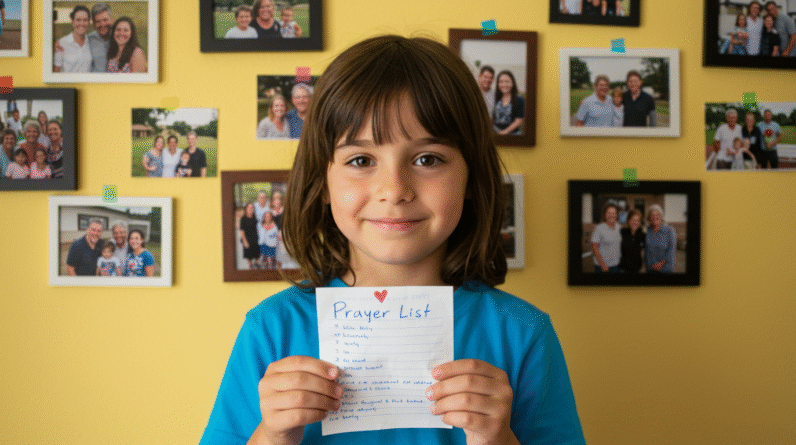Discipline Vs. Punishment: What The Bible Teaches Parents
I’ve often found myself musing over this crossroads that many parents find themselves at: discipline vs punishment. It’s almost like standing before two diverging paths. One path is gentle, nurturing, and understanding, while the other can seem harsh, punitive, and cold. With a Bible resting on the table between these choices, as if suggesting a solution, I feel compelled to take a closer look through its pages.
How you’re guiding your children plays an incredible role in shaping who they become, and as daunting as it may be, the Bible offers a steadying hand. In this article, we’ll delve into what it means to discipline compared to punishing from a biblical perspective with hopes that it inspires a loving approach in nurturing your children’s growth.
The Definition of Discipline and Punishment
First, it’s important to understand the distinction between discipline and punishment. While they might seem similar superficially, they originate from vastly different mindsets. Discipline is rooted in guidance. It asks, “How can I help them learn?” It involves teaching and fostering growth and maturity. Think of it as a compass, gently steering a child towards the right path, providing structure and support along the way.
Punishment, in contrast, often revolves around authority and control. It asks, “How can I make them pay for what they did?” Its focus isn’t on the child’s growth but rather on what the child did wrong. It delivers consequences with little room for understanding or growth, sometimes leaving fear or resentment in its wake.
Biblical Insights on Discipline
The Bible, with its timeless wisdom, often speaks of discipline in the context of love and guidance. Proverbs 13:24 says, “Whoever spares the rod hates their children, but the one who loves their children is careful to discipline them.” The “rod” here is not an instrument of punishment but rather a symbol of guidance and protection. It’s about setting boundaries and teaching values.
In Hebrews 12:11, the scripture acknowledges the discomfort of discipline: “No discipline seems pleasant at the time, but painful. Later on, however, it produces a harvest of righteousness and peace for those who have been trained by it.” The discomfort isn’t for the sake of causing pain but for growth and maturity.
Punishment in Biblical Context
On the other hand, punishment is seldom encouraged as a favorable method. The harshness of punishment is contrasted with the nurturing essence of discipline throughout biblical teachings. Colossians 3:21 warns, “Fathers, do not embitter your children, or they will become discouraged.” This suggests that punishment, which comes from anger or frustration, can harm a child’s spirit.
It’s about understanding that while consequences are sometimes necessary, they shouldn’t come from a place of anger or vengeance. Instead, loving correction is favored.

The Role of Love in Discipline vs Punishment
Love is really the cornerstone of everything the Bible teaches about interacting with others, including raising children. 1 Corinthians 13:4-7 is a passage often quoted about love, which applies well to discipline: “Love is patient, love is kind… it keeps no record of wrongs… always protects, always trusts, always hopes, always perseveres.”
This should guide how discipline is approached. It isn’t about holding things over your child’s head; rather, it’s about fostering an environment in which they feel secure and loved even when they’ve made mistakes.
Practical Examples of Discipline Over Punishment
Most parents have found themselves in situations that call for correction, but choosing discipline over punishment can be challenging without concrete examples. Let’s delve into some everyday situations:
- Tantrums and Emotional Outbursts: Instead of punitive measures like time-outs for every tantrum, consider using calm conversation to teach your child how to process their emotions. This approach aligns with Proverbs 15:1, “A gentle answer turns away wrath, but a harsh word stirs up anger.”
- Breaking Rules: If your child breaks a house rule, engage them in a dialogue about why rules exist and involve them in setting reasonable consequences together. James 1:19 advises, “Everyone should be quick to listen, slow to speak and slow to become angry.”
- Lying: Approaching a child caught in a lie with understanding rather than anger helps maintain trust. In Ephesians 4:15, we’re encouraged to “speak the truth in love”, which is essential for fostering honesty.
How to Cultivate a Discipline-Focused Environment
Creating an environment where discipline is the natural response rather than punishment involves mindfulness and intentional actions. Here’s how you might start:
- Modeling Behavior: Show through your actions how problems and conflicts can be solved calmly and rationally.
- Consistent Routines: Establish daily routines providing structure, predictability, and security that naturally guide behavior.
- Positive Reinforcement: Recognize and celebrate good behavior as a way of encouraging it naturally.
- Open Communication: Keep lines of communication with your children open, making sure they feel safe to express their feelings and thoughts.
The Long-Term Effects of Discipline vs. Punishment
The Bible’s wisdom holds long-term perspectives in high regard, planting seeds whose fruit may not be immediately seen. Children raised with discipline tend to grow into mature, compassionate, and responsible adults, as they learn problem-solving skills and emotional intelligence.
Punishment, conversely, may lead to fear or rebellion. The Bible sees value in planting the seeds of righteousness early and watching them flourish over time. In Galatians 6:9, we’re reminded, “Let us not become weary in doing good, for at the proper time we will reap a harvest if we do not give up.”
Encouragement for Parents Walking the Path of Discipline
As you navigate raising your children, you may face doubts or moments of frustration. Remember, parenthood is as much about growth and learning for you as it is for your children. Phil. 4:13 tells us, “I can do all this through him who gives me strength.” You’re not alone in this, and there’s comfort in knowing your heart is guided by wisdom that has stood the test of time.
Conclusion
Navigating the nuanced world of discipline vs punishment isn’t easy, but the Bible provides us a path paved with love and wisdom, teaching us to guide our children through nurturing and understanding rather than harshness. As you continue to walk this path, may the biblical insights and practical steps shared today serve as encouragement and inspiration.
Explore More
For further reading and encouragement, check out these posts:
👉 7 Bible Verses About Faith in Hard Times
👉 Job’s Faith: What We Can Learn From His Trials
👉 How To Trust God When Everything Falls Apart
👉 Why God Allows Suffering – A Biblical Perspective
👉 Faith Over Fear: How To Stand Strong In Uncertain Seasons
👉 How To Encourage Someone Struggling With Their Faith
👉 5 Prayers for Strength When You’re Feeling Weak

📘 Jesus and the Woman Caught in Adultery – Grace and Mercy Over Judgement
A powerful retelling of John 8:1-11. This book brings to life the depth of forgiveness, mercy, and God’s unwavering love.
👉 Check it now on Amazon
As a ClickBank Affiliate, I earn from qualifying purchases.
Acknowledgment: All Bible verses referenced in this article were accessed via Bible Gateway (or Bible Hub).
“Want to explore more? Check out our latest post on Why Jesus? and discover the life-changing truth of the Gospel!”








